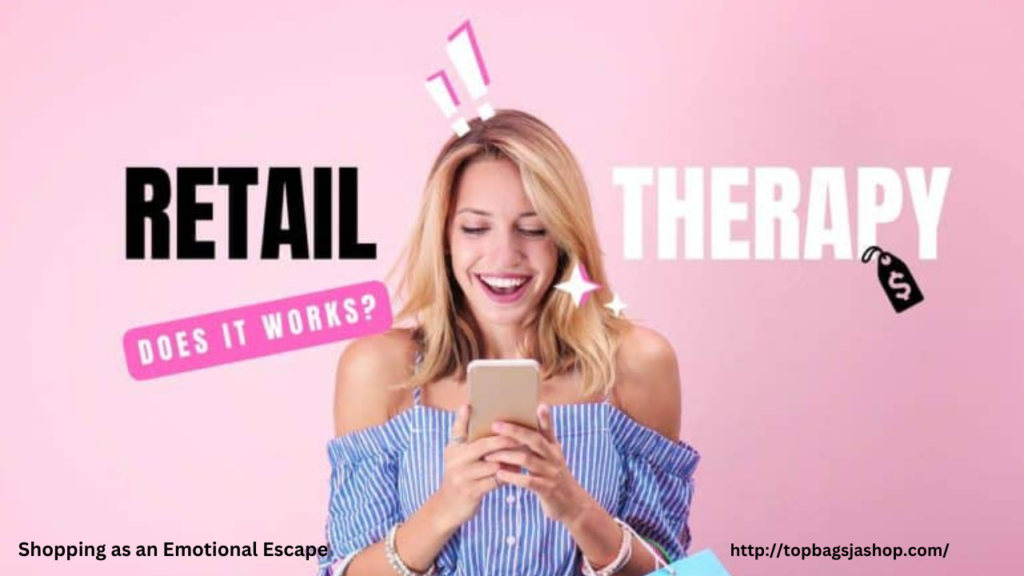
Retail therapy is often marketed as a harmless way to lift your mood. The act of shopping—browsing new products, making a purchase, and enjoying the anticipation of receiving an item—can create a temporary sense of excitement and control. However, what seems like a simple way to de-stress can quickly become a harmful coping mechanism, leading to long-term consequences for mental health and financial stability.
The Emotional High and the Crash
Shopping provides an instant rush of dopamine, the brain’s “feel-good” chemical, which creates a sense of pleasure and reward. This is why many people turn to shopping when they feel stressed, sad, or anxious. The problem is that this relief is short-lived. Once the excitement fades, reality sets in—especially if the purchase was unnecessary or beyond one’s budget.
For some, the emotional high of shopping is followed by feelings of guilt, regret, and anxiety. This creates a harmful cycle: a person shops to feel better, experiences temporary relief, then feels worse afterward, leading them to shop again in an attempt to escape those negative emotions. Over time, this pattern can contribute to worsening mental health, increased stress, and even depression.
Signs That Retail Therapy Is Hurting Your Mental Health
Not all shopping is bad, but when it becomes a primary way of managing emotions, it can signal a deeper issue. Here are some red flags that retail therapy may be negatively impacting your mental well-being:
- Shopping as an Emotional Escape – If you find yourself shopping whenever you’re sad, lonely, or stressed, rather than addressing the root causes of those emotions.
- Buyer’s Remorse and Guilt – Feeling regret, shame, or anxiety after making purchases, especially when they weren’t necessary.
- Hiding Purchases from Others – Feeling embarrassed about spending habits and concealing shopping behaviors from family or friends.
- Neglecting Responsibilities – Prioritizing shopping over important financial obligations, such as rent, bills, or savings.
- Chronic Impulsivity – Struggling to resist the urge to buy things you don’t need, even when you know it will cause problems later.
When shopping shifts from being an occasional pleasure to a compulsive habit, it can lead to a range of emotional struggles, including anxiety, stress, and depression.
The Financial and Psychological Toll
One of the most damaging aspects of retail therapy is its link to financial stress. The more a person spends, the more financial burdens they may face. Credit card debt, late payments, and money worries can all contribute to anxiety and feelings of hopelessness.
Additionally, relying on shopping to cope with emotions can prevent individuals from developing healthier ways to manage stress. Instead of addressing the root causes of sadness, frustration, or anxiety, retail therapy becomes a distraction, delaying real emotional healing.
Breaking Free from Unhealthy Shopping Habits
If you find yourself caught in a cycle of emotional spending, here are some steps to take control:
- Identify Your Triggers – Pay attention to what emotions or situations drive you to shop. Are you stressed? Bored? Lonely? Recognizing these patterns is the first step toward breaking them.
- Find Alternative Coping Mechanisms – Instead of shopping, engage in activities that genuinely boost mental well-being, such as exercise, meditation, journaling, or talking to a trusted friend.
- Set a Budget and Stick to It – Give yourself clear financial boundaries to prevent impulsive spending.
- Delay Purchases – When tempted to buy something, wait 24 to 48 hours before making a decision. This can help prevent unnecessary impulse buys.
- Seek Professional Help – If shopping has become a serious problem, consider speaking to a therapist who specializes in compulsive behaviors and emotional regulation.
Conclusion
While retail therapy can feel like an easy way to escape stress or sadness, it often leads to deeper emotional and financial struggles. Recognizing the signs of unhealthy shopping habits and finding healthier ways to manage emotions can help prevent long-term mental health issues. True well-being doesn’t come from shopping bags—it comes from self-awareness, emotional resilience, and financial stability.